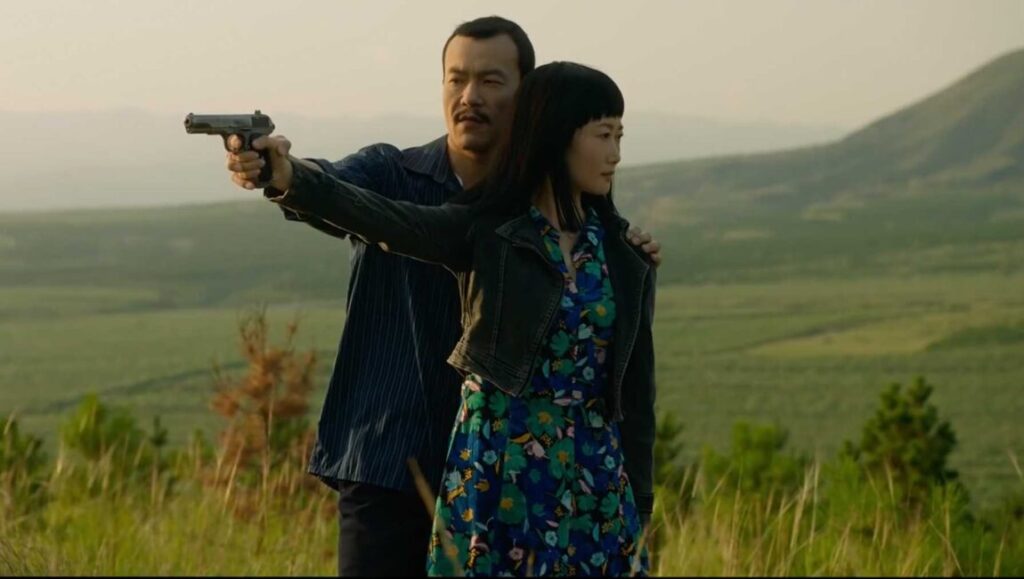Jia Zhang-ke has long been a master of conflating the personal and the political, charting large societal upheavals with a surprising intimacy. Ash Is Purest White is no exception. Following gang moll Qiao (Zhao Tao) from 2001 to 2017, Ash opens with Zhao’s character and her boyfriend Bin (Fan Liao) making big plans for the future, banking on his prediction that he will rise up the ranks of the Jianghu gangster hierarchy, until a street brawl goes horribly awry and Qiao is sent to prison for five years. Upon her release, Qiao realizes that she has been abandoned, and Bin has moved on without her. Determined to confront him directly, Qiao cajoles her way into Bin’s company, only to find his once vaunted sense of honor is missing, his stoicism little more than macho posturing. Eventually, an older, wiser Qiao finds herself the caretaker for a now wheelchair-bound Bin.
Throughout, Jia’s inspiration here seems to be John Woo’s The Killer, which is briefly glimpsed on a TV screen early in the film (he also repeatedly uses a pop song from The Killer performed by Sally Yeh). In Woo’s deeply romantic, melodramatic masterpiece, Chow Yun Fat’s killer-with-a-heart-of-gold gives up everything for the woman he accidentally blinded during a shootout. In Jia’s version, Bin’s low-level thug has no honor, using Qiao only for as long as he needs something from her — a brutal, cynical inversion of Woo’s ideals of honor and masculinity. The last image we see in Ash Is Purest White is of Qiao, filmed through a bank of security cameras. As Jia slowly zooms into the digital image, Zhao becomes blurred — but she remains a survivor amidst this strange new modernity.
Published as part of New York Film Festival 2018 | Dispatch 1.


Comments are closed.